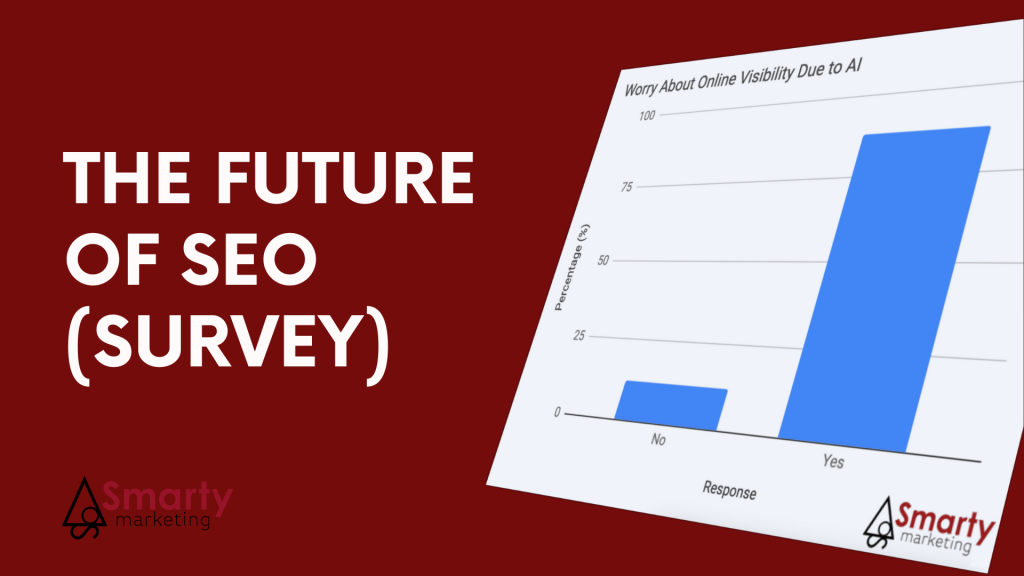
Organic online finability is changing faster than any of us expected.
We’ve all seen it coming: Transitioning from search engines to answer engines, a slow but steady decline of traffic, etc. – The future has long been known.
What we didn’t expect was how fast it was going to happen.
For the past two years, we’ve all lost traffic, witnessed search results get increasingly AI-driven, and seen buying journeys shortening from weeks to minutes.
While we are trying to keep up with the technology race (Google vs ChatGPT vs Perplexity vs Claude, etc.), businesses are struggling to plan for the future.
I’ve surveyed business owners and in-house marketing teams on what they think about the future of organic visibility, and here’s what I have found..
In this article:
Highlights
- The vast majority of businesses (90%) are worried about the future of SEO and online findability
- A significant majority (85.7%) of businesses are already investing or planning to invest in optimizing for AI/LLMs.
- Most businesses (61.2%) plan to increase their SEO budget due to AI.
- A substantial 83.7% of businesses are investing or planning to invest in AI visibility.
- Most businesses prefer to call it “SEO”, with two of the top choices being “SEO for AI” (50%) and “SEO for LLMs” (8%). The second top choice was GEO.
Are businesses concerned about the future of SEO and organic visibility due to AI?
Yes, almost 90% (87.76%) of businesses are worried about organic findability due to AI:
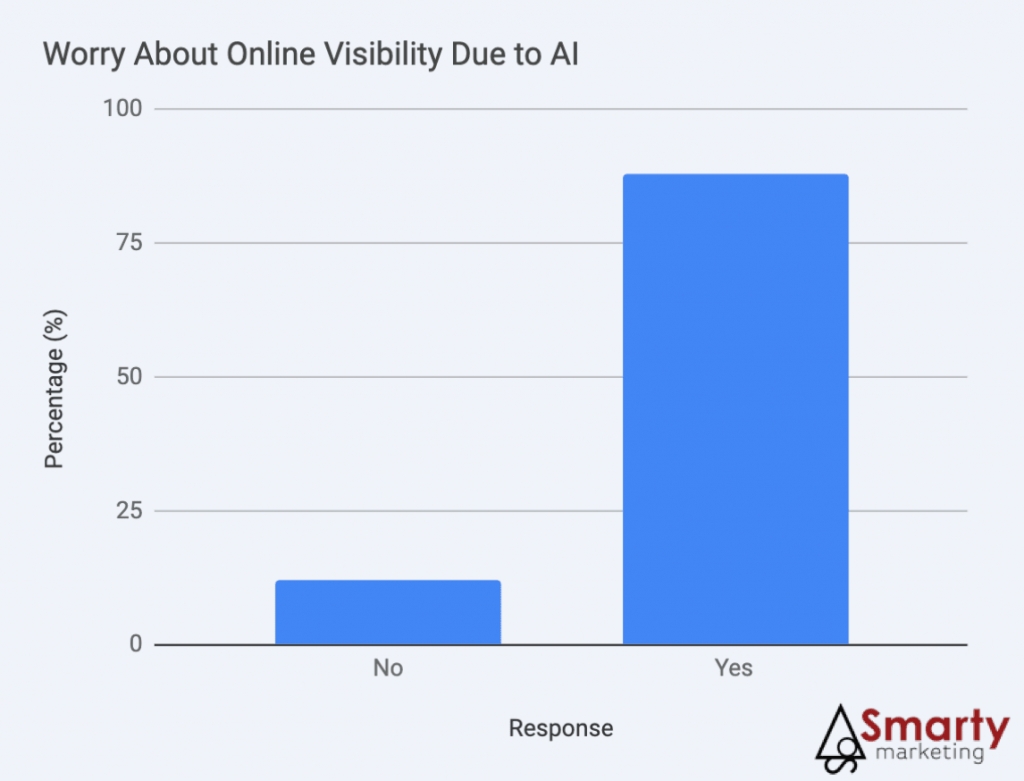
With the rapid loss of clicks and no reliable way to track visibility (without clear click attribution), it is no wonder that the vast majority of businesses are concerned about how they are going to be found online.
“Not being able to get my business found online” is the top concern regarding AI
The best answer to a question, “What are you worried about?” would be, “everything”, of course, because the future is so fuzzy right now. We don’t know how fast ChatGPT or other LLMs will replace search (or ever), we don’t know new customers’ journeys or how to analyze them. I don’t think anyone knows. It is still evolving.
We asked businesses to rate some of those possible concerns. As expected, there was no clear winner here.
The top three concerns regarding AI are:
- Not being able to get my business found online (average rating of 3.69)
- Total loss of organic search (average rating of 3.35).
- Loss of traffic and click attribution (average rating of 3.08)

What is the future of traditional SEO in the AI-driven world?
100% of respondents think SEO will evolve.
None of the business owners and marketing executives think SEO will become obsolete.
Chris Nichols of Fast Frigate explains how technical SEO will remain relevant:
Technical aspects still remain relevant. If they can’t crawl or discover the information your site has to offer then you’ll be excluded. For large enterprise site, watching crawl logs are vital. I’ve seen instances where crawl rates from meta have increased server costs 4x over.
Most businesses plan to increase their SEO budget
- 61.2% of companies are planning to increase their SEO budget because of AI.
- 34.7% of companies do not plan to change their SEO budget because of AI.
- 4.1% of companies are planning to decrease their SEO budget because of AI.
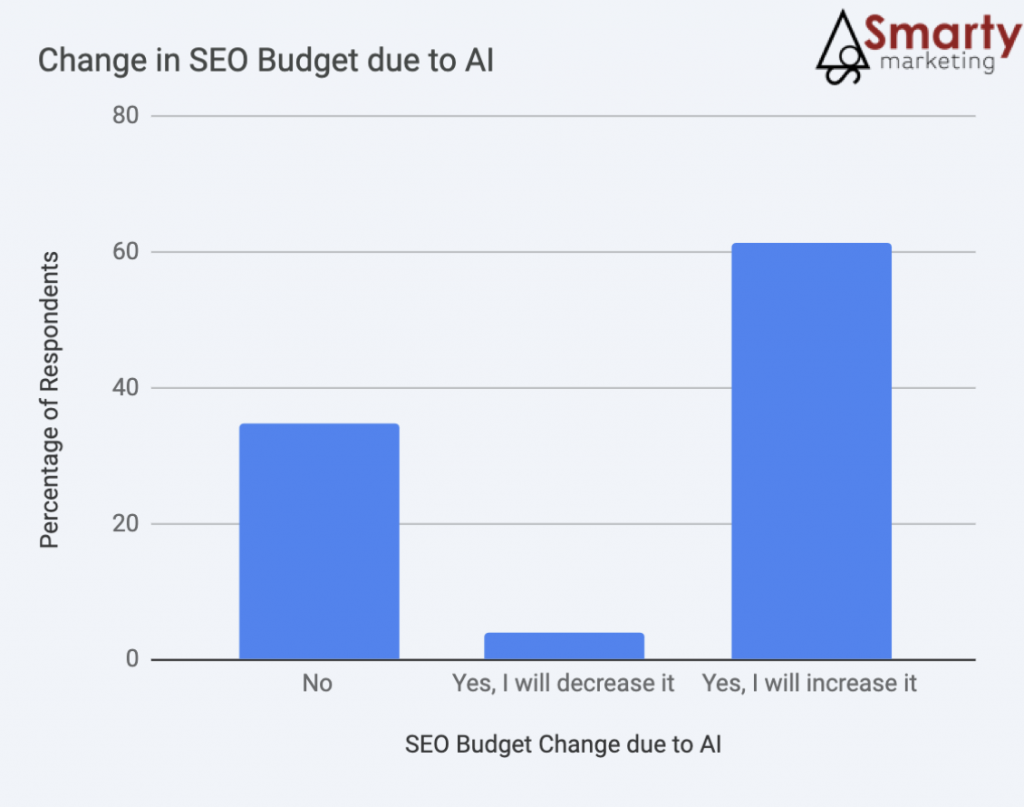
Most businesses prefer to call AI visibility optimization “SEO for AI”; “GEO” is the next top choice
Most businesses prefer the “SEO” term to remain when we refer to optimizing for AI visibility. “GEO” is one of the top alternative options:
- SEO for AI: 48.98%
- GEO: 40.82%
- SEO for LLMs: 8.16%
- AEO: 6.12%
Note: For this question, we allowed participants to choose multiple options, and here I am only including the top choices that ended up included in more answers.
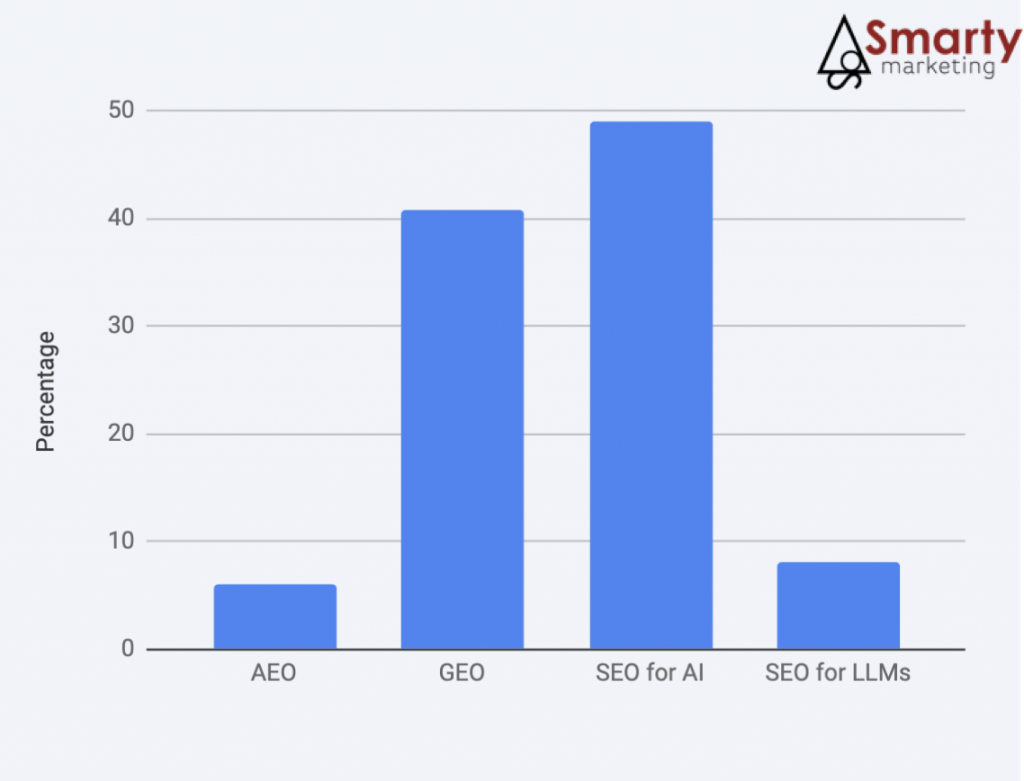
What type of AI visibility do you prioritize?
When optimizing for AI, most businesses prioritize brand visibility in answers, even if it is unlinked:
- 75.51% of respondents prioritize their brand being included in an answer as the recommended solution.
- 14.29% are interested in their site being cited as the resource for an answer, which would generate clicks.
- A smaller percentage of respondents (2.04% each) chose “other”, and most of them commented that they needed both.
Note: We deliberately didn’t include “both” as an option to force the respondents to select between brand visibility and citations (clicks).
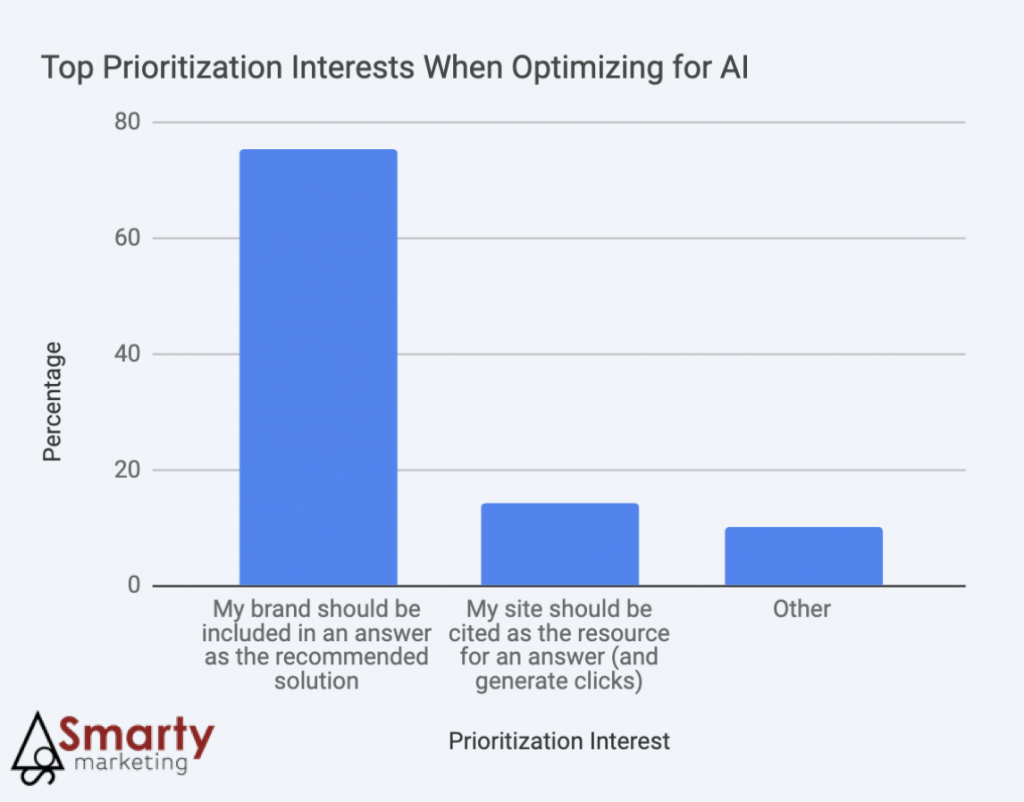
Dave Anderson emphasizes the need for long-term goals:
Avoid the current marginal tactics people are preaching. Right now, the actual business impact of SEO for AI has been minimal in my world, however it will grow and we are planning for the future. Focus on brand mentions (the revival of SEO PR), social media presence and engage, backlinks, and rich content to drive brand mentions and citations in AI results. Don’t worry about the vanity metrics we know and love. For me, AI is part of our SEO strategy, but all of it is built around driving actual business change and results. AI SEO is still in its infancy and it will change frequently. But at the end of the day AI engines are designed to find the best content to answer very specific queries, so as long as you continue to focus on that as a SEO goal it will be ok. In my opinion.
Methodology
I’ve surveyed over 300 business owners and in-house marketing executives:
- Medium-sized businesses (up to 100 employees): 63.3%
- Enterprise businesses (100+ employees): 28.6%
- Small businesses (1-10 employees): 8.1%
Here’s the breakdown of respondents’ roles:
- In-house marketing for a business: 85.7%
- Business owner: 10.2%
- In-house marketing for an agency: 4.1%
Obviously, since the majority of respondents were marketing executives within medium and large organizations, they are more aware of what is happening than small business owners, who may not be as involved in monitoring online visibility.
Most of the participating businesses are well-established (almost 60% of them have existed for more than 10 years):
- More than 10 years old: 57.1%
- 4-9 years old: 36.7%
- Less than one year old: 4.1%
- 1-3 years old: 2.0%
Most of the respondents work for ecommerce brands:
- Ecommerce: 46.9%
- SaaS: 20.4%
- Services: 20.4%
Other business models (publishing, affiliate, subscription, digital products, etc.) were under-represented (with less than 4% each).
![Digital PR + SEO: The Future of Search & AI Visibility [Case Study]](https://www.smarty.marketing/wp-content/uploads/2025/11/Digital-PR-SEO-The-Future-of-Search-AI-Visibility-Case-Study-150x150.png)
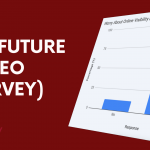
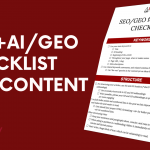
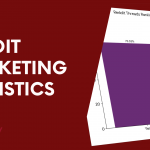
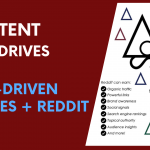
AI is forcing SEO to evolve faster than most organizations can adapt. The winners will be those who stop chasing traffic metrics and start optimizing for brand presence and answer inclusion in AI-driven discovery — visibility, not clicks, is becoming the new KPI.